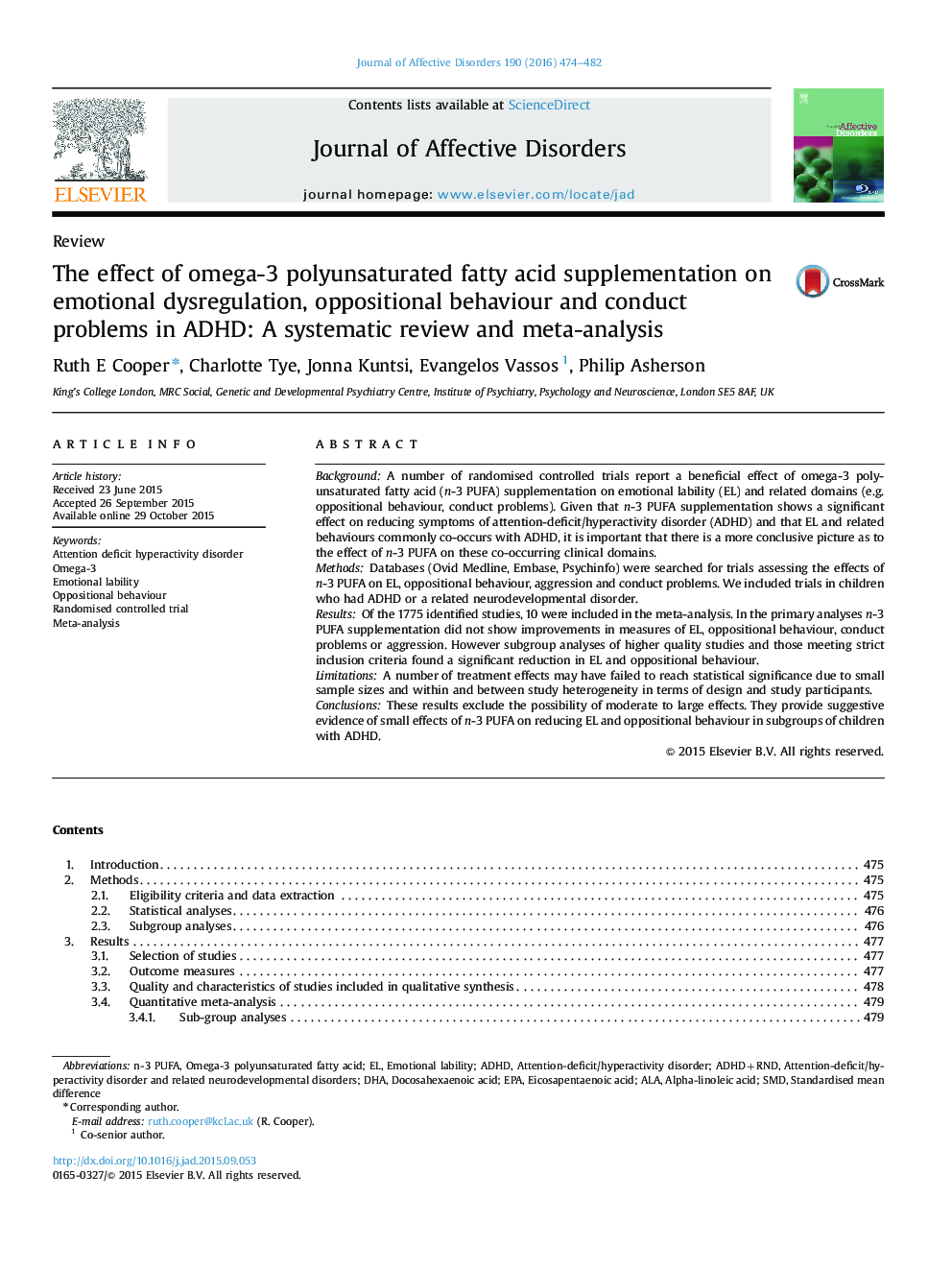| کد مقاله | کد نشریه | سال انتشار | مقاله انگلیسی | نسخه تمام متن |
|---|---|---|---|---|
| 6230766 | 1608135 | 2016 | 9 صفحه PDF | دانلود رایگان |

- Omega-3 supplementation is one of the most studied alternative treatments in ADHD.
- Emotional lability (EL) is a characteristic feature of ADHD.
- There has been mixed evidence as to the effect of omega-3 supplementation on EL.
- Omega-3 may have a small effect on reducing EL and oppositional behaviour.
BackgroundA number of randomised controlled trials report a beneficial effect of omega-3 polyunsaturated fatty acid (n-3 PUFA) supplementation on emotional lability (EL) and related domains (e.g. oppositional behaviour, conduct problems). Given that n-3 PUFA supplementation shows a significant effect on reducing symptoms of attention-deficit/hyperactivity disorder (ADHD) and that EL and related behaviours commonly co-occurs with ADHD, it is important that there is a more conclusive picture as to the effect of n-3 PUFA on these co-occurring clinical domains.MethodsDatabases (Ovid Medline, Embase, Psychinfo) were searched for trials assessing the effects of n-3 PUFA on EL, oppositional behaviour, aggression and conduct problems. We included trials in children who had ADHD or a related neurodevelopmental disorder.ResultsOf the 1775 identified studies, 10 were included in the meta-analysis. In the primary analyses n-3 PUFA supplementation did not show improvements in measures of EL, oppositional behaviour, conduct problems or aggression. However subgroup analyses of higher quality studies and those meeting strict inclusion criteria found a significant reduction in EL and oppositional behaviour.LimitationsA number of treatment effects may have failed to reach statistical significance due to small sample sizes and within and between study heterogeneity in terms of design and study participants.ConclusionsThese results exclude the possibility of moderate to large effects. They provide suggestive evidence of small effects of n-3 PUFA on reducing EL and oppositional behaviour in subgroups of children with ADHD.
Journal: Journal of Affective Disorders - Volume 190, 15 January 2016, Pages 474-482